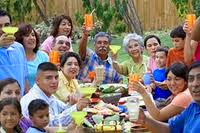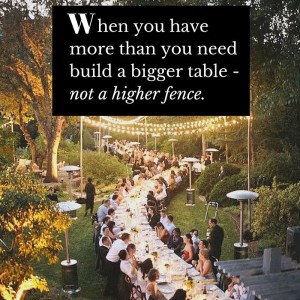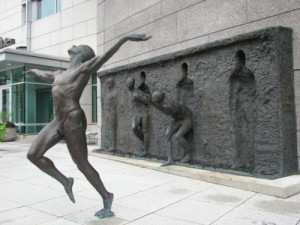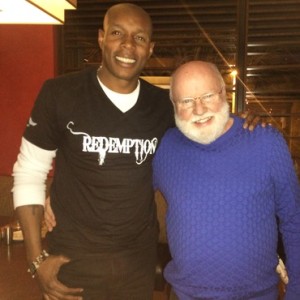A couple years ago, I was honored to join Coffee Party radio for a discussion about Faith, Culture and Politics. We all agreed that mixing faith and politics is very tricky. 
Whereas just a few years ago Evangelical Christians resisted political involvement now, in the conventional wisdom, “Christian” = “Religious Right” = “Republican.”
These days there are so many conservative political figures and outspoken lobbying groups that wear the name Christian that we progressive Christians have been immersed in their same bathwater and nearly thrown out of the public conversation.
But there is an appropriate place in our national discourse for the advocacy of a different kind of Christian voice other than that which has taken center stage.
In our radio conversation, we began by discussing the First Amendment.
Congress shall make no law respecting an establishment of religion, or prohibiting the free exercise thereof; or abridging the freedom of speech, or of the press; or the right of the people peaceably to assemble, and to petition the government for a redress of grievances.
I take this very seriously because the protection of religious freedom is a huge gift our founding fathers gave to us.
As a person of faith and a Christian minister, I come at the First Amendment from two different angles.
First, for this country that I love, I want all our citizens to realize the freedom to practice faith the way they best understand it and I’m proud that America’s insistence on this principle has been unusual in the history of the world; freedom of religion is one of our great strengths.
Of course, as a people, we have not lived up to our principles very well. The spirituality of the Native Americans was disrespected from our very beginnings. The enslaved Africans were forced to give up their religions in order to convert to a perverted version of Christianity that justified slavery. Asian immigrants were suspect because of the way they practiced their faith; Catholics were mistreated by the WASP culture of the day; Jews have been vilified and demonized; Muslims are still struggling to find their place in the midst of today’s paranoia.
I realize that what I’m describing here are not legal issues that hearken back to the government’s role as described in the Bill of Rights but rather some of the cultural realities of our society. I’m describing divisions that happen within the human family just because we are human.
But the genius of the First Amendment is that our various governments are charged with protecting all religious freedom; not only should our laws not favor one religion over another but they also must not “prohibit the free exercise” of religion. In a multi-cultural society such as ours, that has to refer to people who hold a wide range of spiritual beliefs and participate in a variety of religious practices.
Christians who want to claim that America is a “Christian nation” founded on “Christian principles” and therefore justified in continuing Christian privilege skew American history.
It is true that most of the Founding Fathers were at least loosely affiliated with some kind of Christian denomination or another. That was the acceptable culture of the day.
But we cannot say America was founded on Christianity, because it is clear that the Founders were very intentional about moving away from the model they were used to, the model so common in England. They yearned for a new way and so they debated and comprised and came up with this brilliant plan that the government should not use its power to establish one religion over another, one denomination over another, one ideology over another.
That said – it is also true that Christianity has been the dominant religion in America since our beginnings and it is hard, hard, hard for humans to give up their privileges and advantages.
I know that some Christians feel like they are being persecuted because the culture is shifting and they are losing their long held privilege and influence. I’m sorry people feel that way; just because a group is losing power doesn’t mean they are being persecuted.
I like to use the metaphor of a family dinner table. The people who have had the most access to the table need to be gracious enough to move over and make room for everyone to have a place. The quirky son-in-law. The outspoken cousin. The rowdy grandchildren. The aging parents.
America’s family table IS big enough for all of us.
And in a society like ours that values the freedom of speech as much as it values the freedom of religion, the First Amendment insists that all citizens are invited into the national conversation.
Religious and non-religious, progressive and conservative, rich and poor, Black and White and Brown: citizens can and must speak and vote and write letters, sometimes even protest. These are just a few of the ways all of us can continue to grow and learn how to live well together.
The government cannot prohibit the participation of anyone in this large cultural conversation and we the people should not shut down each other’s voices either.
But then there is second angle on the First Amendment that is important to me: as strongly as I feel about Americans being able to practice religion as they see fit, as a pastor, I am even more concerned that Christians should actually live out the faith of Jesus Christ with more faithfulness, and I am very concerned abou t the ways Christian faith is compromised whenever it is wed inappropriately to civic faith.
t the ways Christian faith is compromised whenever it is wed inappropriately to civic faith.
For example, when Christians are so enamored of capitalism that we can’t critique the inequitable distribution of wealth within our nation – then the teachings of Christ are ignored and Christian faith is compromised.
When Christians join in the mindless drumbeat for war – then the example of Christ is lost and Christian faith is compromised.
The people who raised me and influenced me when I was growing up were all very conservative – theologically, socially and politically. It wasn’t until I was able to think for myself and ask hard questions that I began to shift my beliefs.
Change is hard – but immensely important work.
I know a lot of good, kind conservative people who don’t necessarily believe that change is good; their definition of faithfulness is to avoid change. Or maybe they just can’t allow themselves to question what they have always believed to be true; I know from experience questions can be very scary.
But it was only when I gave myself permission to question the narrow dogma of my childhood that I was able to grow into a broader, more inclusive understanding of Christianity. And interestingly, that shift directly affected my social values: how I believe we should treat each other as people living together in a society.
Some of my conservative Christian friends wonder if I’m really Christian at all. Some of my liberal friends wonder why I even still bother with Christianity given its very poor reputation these days.
But this is who I am, deep in my core, and I cannot betray it; I can only hope to live my faith in such a way that its circle of goodness and grace might touch the people and the situations of my wider world.
Feed the hungry.
Welcome the stranger.
Free the oppressed.
Speak out for the least of these.
Give without expecting return.
Trust. Persevere. Love.
These actions flow from my faith but also from values that I share with the Coffee Party USA – Civility, Continuous Learning, Authenticity & Transparency, Integrity & Clarity, Inclusiveness…
I hope I will always be alert to ways I may inappropriately wed Christian faith to patriotism or nationalism; that’s always a deadly marriage.
But I also hope I will always be alert to the ways that faith and hope and love can help nudge my culture and my nation to greater wisdom, goodness and wholeness.
This essay is excerpted from Press 1 for Democracy, Coffee Party Blogtalk Radio, October 6, 2014: Faith, Culture and Politics.
http://www.blogtalkradio.com/coffeepartyusa/2014/10/07/faith-culture-and-politics–p1fd-10614
Charlotte Vaughan Coyle lives in Paris TX and blogs about intersections of faith, culture and politics on her website and Intersections Facebook page. 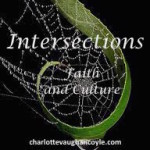 She is national secretary for Coffee Party USA and contributes regularly to the Join the Coffee Party Movement Facebook page.
She is national secretary for Coffee Party USA and contributes regularly to the Join the Coffee Party Movement Facebook page.
Charlotte is an ordained minister within the Christian Church (Disciples of Christ) and also blogs about Scripture from a progressive Christian approach in her Living in The Story Musings.


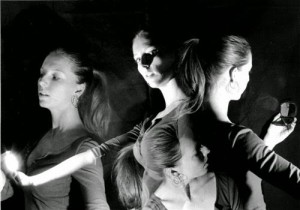
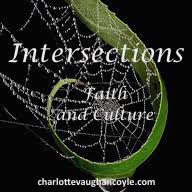


 She is national secretary for
She is national secretary for 